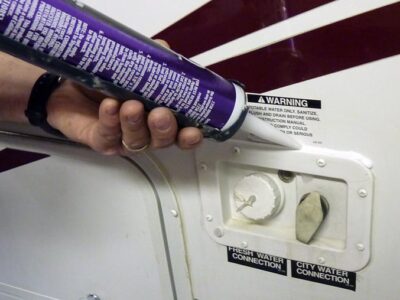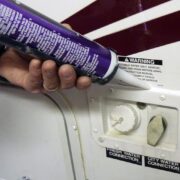
Running is a popular form of exercise that offers numerous health benefits, including improved cardiovascular health, weight management, and mental well-being. One of the most common questions among runners is how many calories they burn while running a mile. The answer to this question depends on several factors, including your weight, running speed, and overall fitness level. In this comprehensive blog, we will find out how many calories do you burn running a mile, the factors influencing it, and tips to maximise your calorie burn.
Understanding Calorie Burn
What Are Calories?
Calories are a unit of energy that measure the amount of energy food provides and the amount of energy your body uses during various activities. When you consume food, your body converts it into energy to fuel bodily functions and physical activities. When you exercise, you burn calories as your body uses energy to perform the activity.
The Basics of Calorie Burn
Calorie burn during exercise is influenced by several factors:
- Body Weight: Heavier individuals burn more calories because their bodies require more energy to move.
- Intensity of Exercise: Higher intensity exercises, such as running at a faster pace, burn more calories than lower intensity exercises.
- Duration of Exercise: The longer you exercise, the more calories you burn.
- Metabolic Rate: Individuals with a higher basal metabolic rate (BMR) burn more calories at rest and during exercise.
Calculating Calorie Burn Running a Mile
The General Estimate
So, how many calories do you burn running a mile? A general estimate is that running a mile burns approximately 100 calories for an average person. However, this estimate can vary significantly based on individual factors. For a more accurate calculation, consider the following variables:
Body Weight
Body weight is one of the primary factors affecting calorie burn. Heavier individuals burn more calories per mile because they expend more energy to move their bodies. Here’s a rough estimate of calories burned per mile based on weight:
- 120 pounds: Approximately 85 calories per mile
- 140 pounds: Approximately 100 calories per mile
- 160 pounds: Approximately 115 calories per mile
- 180 pounds: Approximately 130 calories per mile
- 200 pounds: Approximately 145 calories per mile
Running Speed
Running speed also influences how many calories do you burn running a mile. Running at a faster pace increases the intensity of the exercise, leading to higher calorie expenditure. For example:
- 5 mph (12-minute mile): Burns fewer calories compared to faster speeds
- 6 mph (10-minute mile): Burns more calories
- 7.5 mph (8-minute mile): Burns even more calories
Terrain and Running Conditions
Running on different terrains and in varying conditions can also affect calorie burn. For example:
- Flat Surface: Running on a flat surface, such as a track, generally burns fewer calories compared to more challenging terrains.
- Hilly Terrain: Running uphill requires more effort and burns more calories.
- Weather Conditions: Running in extreme weather conditions (hot or cold) can increase calorie expenditure as your body works harder to regulate temperature.
Using a Calorie Burn Calculator
To get a more precise estimate of how many calories do you burn running a mile, you can use an online calorie burn calculator. These calculators typically require inputs such as your weight, running speed, and duration of exercise. Here’s an example of how to use a calorie burn calculator:
- Enter Your Weight: Input your weight in pounds or kilograms.
- Select Running Speed: Choose your running speed from the options provided.
- Enter Duration or Distance: Input the distance you plan to run (in this case, 1 mile).
- Calculate: The calculator will provide an estimate of calories burned based on the information provided.
Maximising Calorie Burn While Running
If your goal is to maximise calorie burn, consider the following tips:
Increase Running Speed
Running at a faster pace increases the intensity of your workout and burns more calories. Incorporate interval training into your routine, alternating between high-intensity sprints and lower-intensity recovery periods.
Add Inclines
Running on hilly terrain or using a treadmill with an incline can significantly boost calorie burn. The added resistance requires more effort, leading to higher energy expenditure.
Extend Running Duration
The longer you run, the more calories you burn. Gradually increase your running distance to enhance calorie burn. However, ensure you do this safely to avoid injury.
Incorporate Strength Training
Strength training builds muscle, which increases your basal metabolic rate (BMR). A higher BMR means you burn more calories at rest and during exercise. Incorporate strength training exercises, such as squats, lunges, and deadlifts, into your fitness routine.
Stay Hydrated
Proper hydration is essential for optimal performance and calorie burn. Dehydration can reduce exercise efficiency and hinder your ability to burn calories. Drink plenty of water before, during, and after your run.
Understanding the Benefits of Running Beyond Calorie Burn
While calorie burn is a significant benefit of running, it’s essential to recognize the broader advantages of this exercise:
Cardiovascular Health
Running improves cardiovascular health by strengthening the heart and increasing lung capacity. Regular running can lower the risk of heart disease, high blood pressure, and stroke.
Weight Management
Running is an effective way to manage weight. By burning calories and building muscle, running helps maintain a healthy weight and reduces body fat.
Mental Health
Running releases endorphins, which are natural mood boosters. It can reduce symptoms of depression, anxiety, and stress, promoting overall mental well-being.
Improved Sleep
Regular physical activity, such as running, can improve sleep quality and help regulate sleep patterns. Better sleep contributes to overall health and well-being.
Common Questions About Running and Calorie Burn
How Accurate Are Fitness Trackers for Measuring Calorie Burn?
Fitness trackers provide a convenient way to estimate calorie burn, but their accuracy can vary. Factors such as heart rate monitoring and personal data (age, weight, gender) improve accuracy, but they may not account for all variables affecting calorie burn.
Does Running on a Treadmill Burn the Same Calories as Running Outside?
Running on a treadmill can burn similar calories to running outside, but factors like wind resistance and terrain can affect calorie burn. To replicate outdoor running conditions, set the treadmill incline to 1-2%.
How Can I Track My Running Progress?
Using running apps, fitness trackers, or GPS watches can help track your distance, pace, and calories burned. These tools provide valuable insights into your progress and help set goals.
Conclusion
So we have learnt that how many calories do you burn running a mile depends- on factors such as body weight, running speed, and terrain. By understanding these variables and incorporating strategies to maximise calorie burn, you can make the most of your running workouts. Beyond calorie burn, running offers numerous health benefits, including improved cardiovascular health, weight management, and enhanced mental well-being. Whether you’re a seasoned runner or just starting, embracing the joys of running can lead to a healthier and more fulfilling life.





